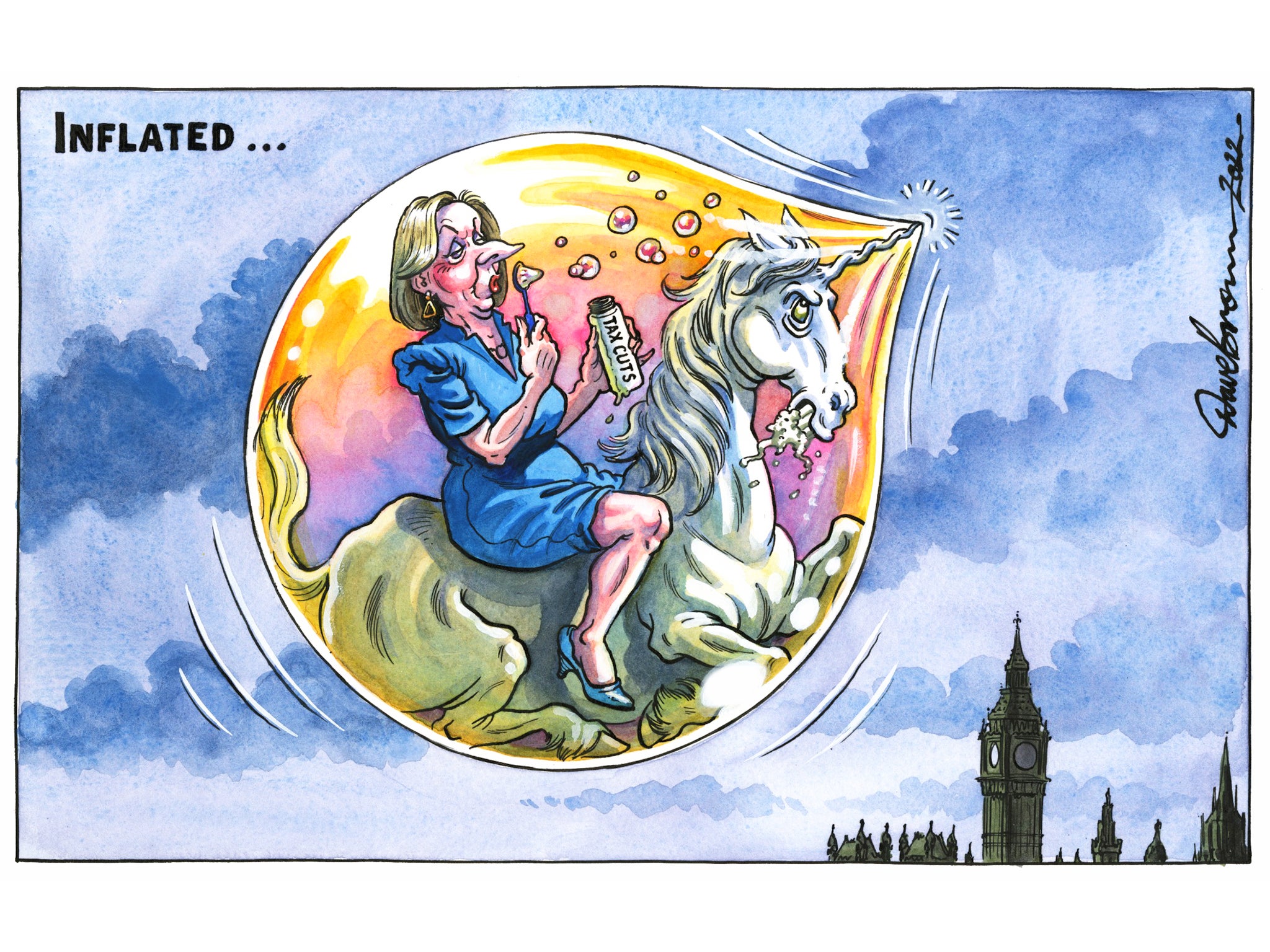The Tory leadership candidates have completely ignored the real issues
Editorial: Liz Truss and Rishi Sunak have acknowledged the rising cost of living but often in an opportunistic way

The Conservative Party leadership race seems to be taking place on its own planet. It has been dominated by candidates outbidding each other on tax cuts, with the frontrunner Liz Truss promising reductions that could amount to £50bn a year, according to her rival Rishi Sunak.
These pledges bear little relation to the real world, where millions suffer in the cost of living crisis. With inflation at its highest level for 40 years, the Bank of England is expected to announce a further rise in interest rates on Thursday – possibly the first 50 basis point increase since 1995, compounding the financial squeeze for some homebuyers.
Ms Truss and Mr Sunak have nodded to the living standards problems that would inevitably be at the top of their bulging in-tray on becoming prime minister, but often in an opportunistic way. The foreign secretary’s main offering is to reverse the rise in national insurance contributions the former chancellor introduced in April, even though only 15 per cent of the help would go to the poorest half of the population.
Mr Sunak has promised to scrap VAT on domestic energy bills as a temporary measure, while legitimately warning that Ms Truss’s plans would risk even higher inflation and thus higher interest rates.
The new occupant of 10 Downing Street would inevitably have to bow to public and political pressure to spend billions more on alleviating the impact of higher energy bills in what will be a bleak winter for millions of households. The latest estimate suggests their annual bill could rise to £3,359 in October, rising to £3,616 in January and £3,729 next April 2023.
While the Tory candidates’ pledges might tickle the tummy of the 160,000 party members choosing our next prime minister, in the real world the storm clouds grow ever darker. Inflation could rise from 9.1 per cent to as high as 15 per cent early next year, the Resolution Foundation think tank warned this week.
Meanwhile, there has been remarkably little Tory debate about the direct help the public will obviously need this winter. The candidates seem reluctant to discuss increases in state benefits, perhaps judging that the party members whose votes they seek have a one-dimensional view of claimants as workshy or scroungers. If so, this is outdated: some 40 per cent of people on universal credit are in work.
Nor has there been any discussion of the “high-wage economy” Boris Johnson promised us 10 months ago; instead, ministers tell public sector workers to swallow below-inflation pay settlements for the good of the country.
As chancellor, Mr Sunak was right to reduce the taper rate for universal credit so that workers keep more of every extra pound they earn. But during the campaign he has pledged to double the benefit’s "administrative earnings threshold" from nine to 18 hours’ work a week, above which claimants get only "light touch" checks on whether they are looking for more work. He said: "If you’re taking money from the taxpayer at a time when the economy needs workers and we need to combat inflation, you should be taking the jobs that are on offer."
Similarly, Ms Truss has pledged to tighten up the welfare system, saying: “We’ve still got a lot of economically inactive people who are not taking the opportunities of work."
Ms Truss and Mr Sunak would be better advised to study the recommendations from the National Institute for Economic and Social Research. The economic think tank is right to call for higher welfare payments for millions of households facing the invidious choice between “eating and heating”. It proposes a £25-a-week increase in universal credit in October for at least six months, and a £200 rise in the £400 energy bill rebate for 11 low-income families. Indeed, that would be a much better use than tax cuts of the fiscal headroom stemming from a falling budget deficit.
To keep up to speed with all the latest opinions and comment, sign up to our free weekly Voices Dispatches newsletter by clicking here
Despite all the headlines, the tax cuts promised during the Tory leadership election are highly illusory. The Institute for Fiscal Studies calculates that even if Mr Sunak achieved his goal of a 16p in the pound basic rate of income tax by 2029, the £19bn a year handed back would amount to less than half of his net tax rises as chancellor. It said: “Mr Sunak’s new policy would still leave the total tax take, as a proportion of national income, at its highest level since around the early 1950s.”
Ms Truss’s tax package would be even bigger. The only crumb of comfort is that the incoming prime minister will be forced by events to face the economic crisis in the real world rather than remain in the warm bubble of Planet Tory. It would be much better for the country, and their party, if they started to address the real challenges immediately.






Join our commenting forum
Join thought-provoking conversations, follow other Independent readers and see their replies
16Comments